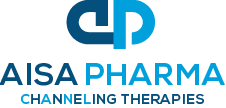About the RECONNOITER Study Program
(Randomized Evaluation of the benefit of Cilnidipine ON the Nature, Observational Indices, Temperature changes and overall Effect in scleroderma and Raynaud’s Disease)
The RECONNOITER Study is a 76 patient prospective, double-blind, randomized Phase 2A trial designed to assess the safety and efficacy of cilnidipine alone and in combination with tadalafil in patients with scleroderma and secondary Raynaud’s. The study will assess the impact of the treatments on a variety of endpoints including Raynaud symptoms, GI effects, endothelial dysfunction and overall assessments of well-being. The study is being conducted in two parts, Part A, a Phase 2A parallel arm design to evaluate dose, safety, and efficacy, which is complete, and Part B, a Phase 2 randomized crossover design to formally demonstrate safety and efficacy.
Patients are being recruited at two hospitals in Australia, and the study started in June of 2021. Following this study, a United States multicenter study is planned. In 2022, the Data Safety Monitoring Board (DSMB) for the study met and reviewed data on the first 27 patients in part A and selected a dose of AISA-021 to be used in the second part of the study and felt that the first part of the study had met all of its goals so voted to terminate enrollment of the additional 9 patients and end that part of the study early. The DSMB felt that the drug was well tolerated, the study design was robust, and that a strong suggestion of efficacy had been demonstrated. Aisa is currently completing enrollment in this study.
Scleroderma, or systemic sclerosis, is a devastating autoimmune disease with the highest mortality and disability incidences of this group of diseases. While treatments have been approved to treat the lung changes that accompany the disease, there is no treatment approved to treat the Raynaud symptoms that occur in 95% of these patients, the GI symptoms, or significantly modify the course of the disease. It is hoped that AISA-021 may produce such as result.
